Olympics 2018: Everything you need to know about the Pyeongchang Winter Games in South Korea
Here's everything you need to know about the upcoming Winter Olympic Games.
— -- Torchbearers carrying the Olympic flame lit the cauldron in South Korea today, marking the official start of the 23rd Olympic Winter Games.
Here's everything you need to know about the major international multi-sport event.
When does the 2018 Winter Olympics begin?
Competition for the Games began Feb. 8, and the opening ceremony was held today.
The closing ceremony will take place Feb. 25.
Which city is hosting?
Pyeongchang county in South Korea is hosting the 23rd Olympic Winter Games. The region won the right to hold the Games after two previously unsuccessful attempts, this time beating top bids from Annecy, France, and Munich, Germany.
Pyeongchang is located some 80 miles east of the country's capital, Seoul, and about 60 miles south of the Demilitarized Zone dividing North Korea and South Korea.
Opening and closing ceremonies will occur at Pyeongchang Olympic Stadium, a temporary venue that can seat 35,000 spectators. All competition venues are located within 30 minutes driving distance from the stadium.
The Pyeongchang Olympic village is housing up to 3,894 athletes and team officials during the 2018 Winter Games, while a second village in Gangneung is accommodating more than 2,900 personnel.
It's the second time the Olympics will be held in South Korea; Seoul was the host city for the Summer Olympics in 1988.
The first Winter Olympics were held in Chamonix, France, in 1924.
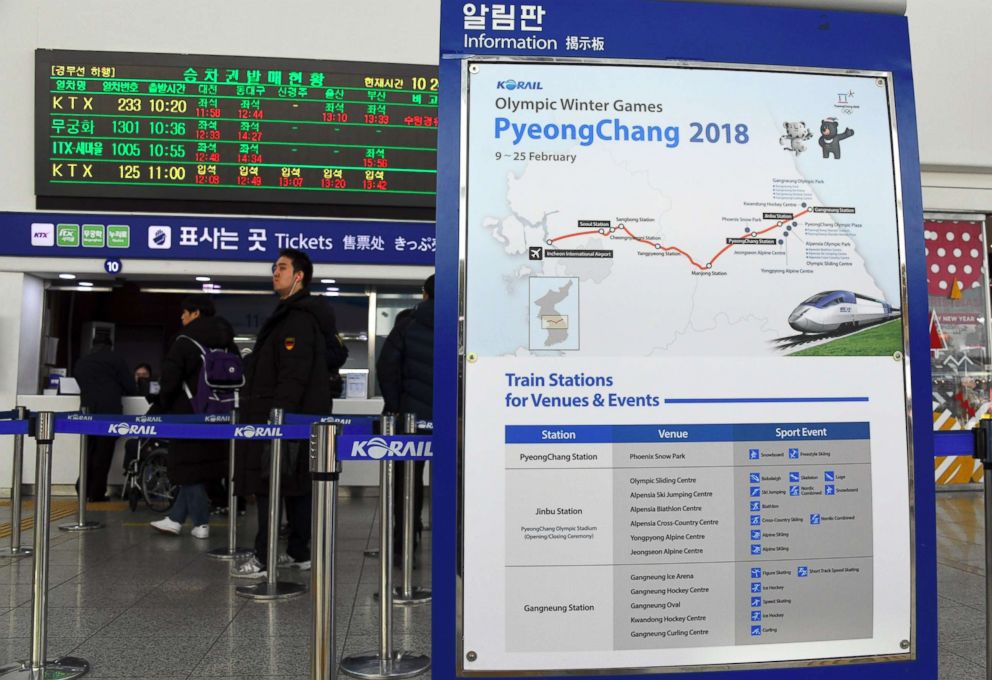
How can you watch?
Those in the United Kingdom can watch the Games via BBC on television and online. Check ABCNews.com for updates.
What are the events?
The 2018 Winter Olympics features 102 events in 15 sport disciplines. The sports include bobsleigh, curling, figure skating, luge, snowboard and ski jumping.
The International Olympic Committee added some new events for the 2018 Winter Olympics: big air snowboarding, freestyle skiing, mass start speed skating and mixed doubles curling.
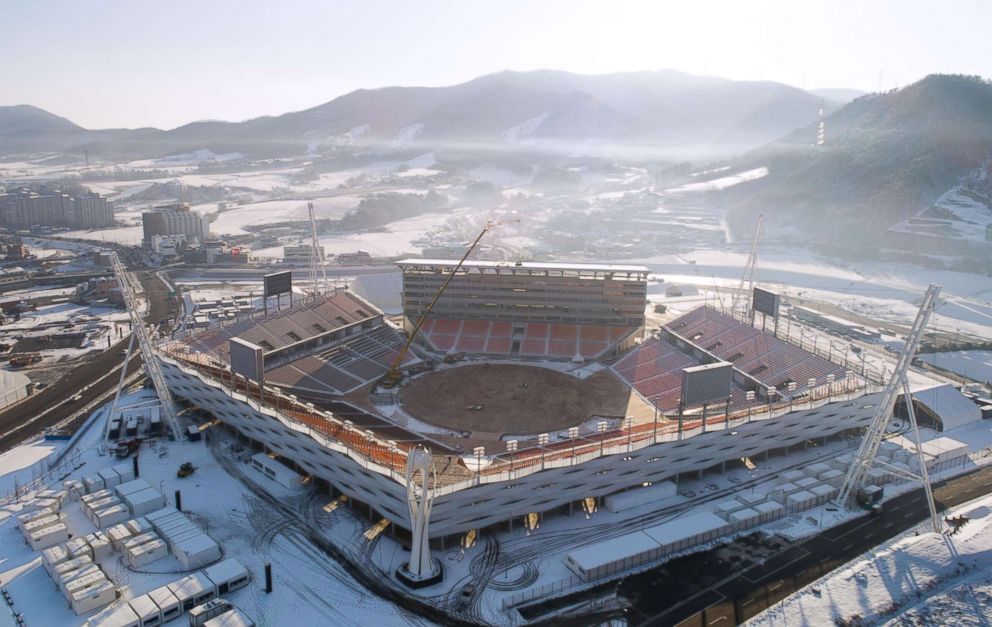
Russia is banned from the Games. Why?
The International Olympic Committee announced in December that it was barring Russia's national Olympic committee from the 2018 Winter Olympics as a punishment for its alleged state-sponsored cover-up of doping by its athletes. Some Russian athletes will still be allowed to participate in the Games by competing individually under a neutral Olympic flag.
The International Olympic Committee said its report had not found any evidence that the Kremlin was aware of the doping cover-up, but confirmed the findings of previous investigations by the World Anti-Doping Agency. Those investigations uncovered evidence that Russia had concealed doping by hundreds of its athletes for years, aided by the country's intelligence services. The cover-up reached a crescendo during the 2014 Winter Olympics hosted by Russia in Sochi.
Russian President Vladimir Putin said his government won't prevent athletes from competing in 2018 Winter Olympics under a neutral flag, but he questioned the premise of the ban if the International Olympic Committee concluded there was no state-sponsored system of doping.
"Punish those who are to blame," Putin said last month. "And secondly, if there is no state support of doping, then why can't we compete under our national symbols? That, of course, is a big question."
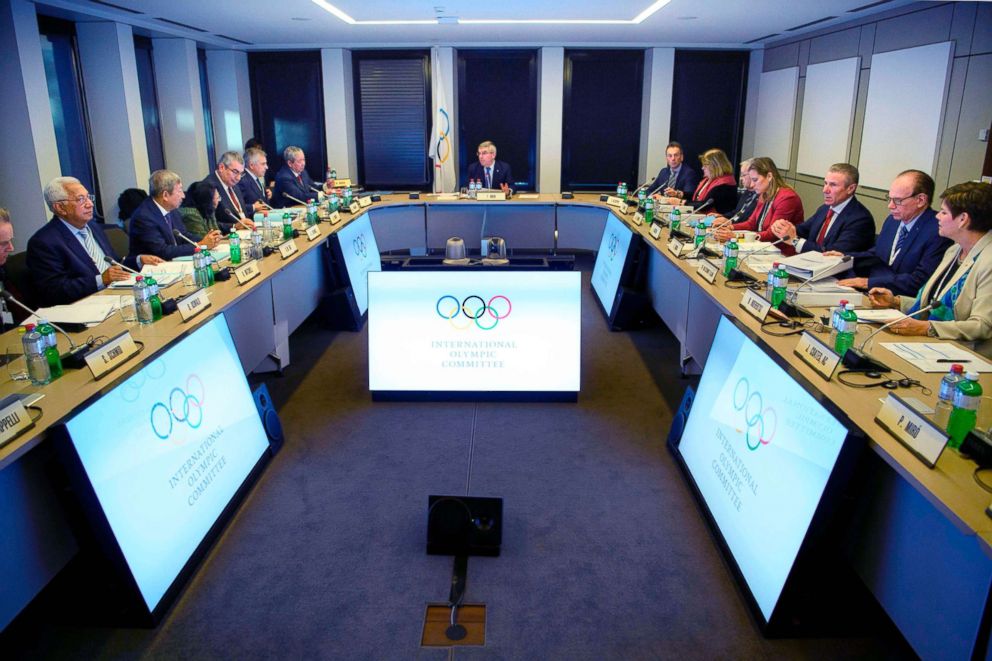
What do the medals look like?
South Korean designer Lee Suk-woo created the medals for the 2018 Games.
Inspired by the texture of tree trunks, the medals feature a design of dynamic diagonal lines and three-dimensional characters from Hangeul, the Korean alphabet. The teal and red ribbon from which the medal hangs was made using Gapsa, a traditional South Korean fabric, and is embroidered with Hangeul patterns and other designs.
The gold medal weighs the most at 586 grams. A total of 259 sets of medals have been made for the 2018 Winter Olympics, according to the Games official website.
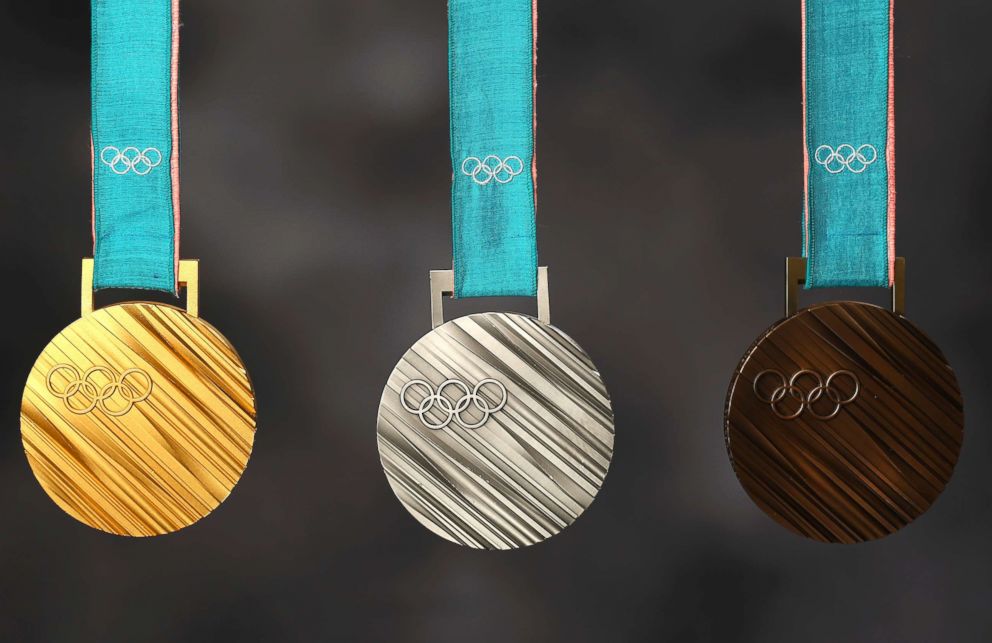
What is the mascot?
A white tiger named Soohorang is the mascot of the this year's Winter Olympics. The white tiger has been long considered a guardian in Korean history and culture, according to the Games website.
"Sooho," meaning "protection" in Korean, symbolizes the protection offered to the athletes, spectators and other participants of the Games. "Rang" comes from the middle letter of" Ho-rang-i," the Korean word for "tiger," and is also the last letter of "Jeong-seon A-ri-rang," a traditional folk song of Gangwon province, which governs Pyeongchang, according to the Games website.
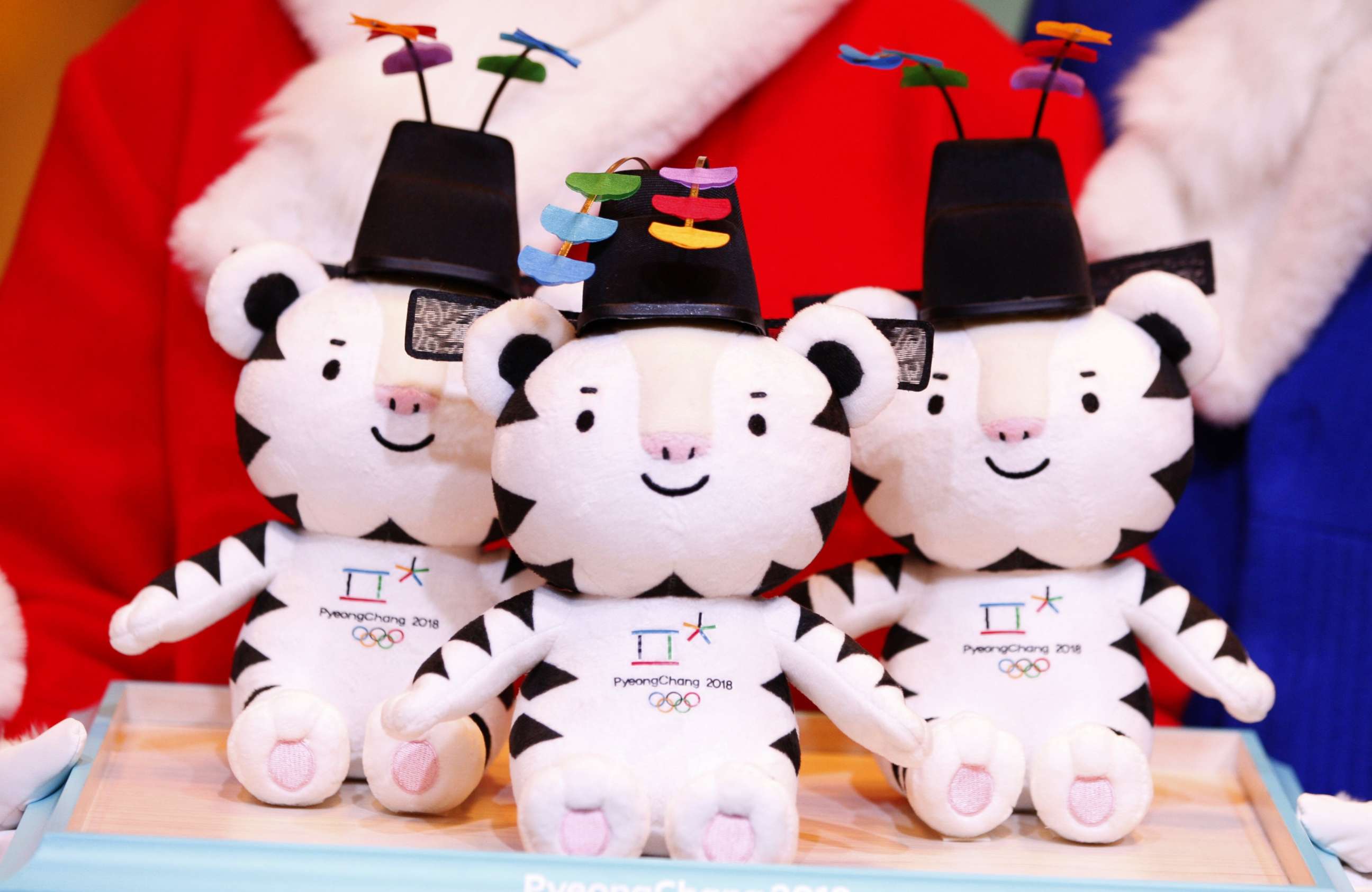
Who pays for the Olympics?
A 2016 report entitled "The Oxford Olympics Study 2016: Cost and Cost Overrun at the Games" found the Olympic Games held over the previous decade each have cost $8.9 billion on average. Factoring in only sports-related costs, the most expensive Summer Games were in London in 2012, which totaled $15 billion; the most costly Winter Games -- at $21.9 billion -- were in Sochi in 2012, according to the report.
Taxpayers of the hosting city foot a good chunk of the bill.
The privately-funded International Olympic Committee retains 10 percent of its revenue from its broadcast agreements and global sponsorship. The committee distributes the other 90 percent to support the staging of the Olympic Games and to promote the worldwide development of the sport. These funds include money for national Olympic committees and financial support to countries.
The International Olympic Committee contributed $833 million to support the 2014 Winter Olympics in Sochi, according to a report by the committee.
Will the Pyeongchang Games be safe?
The issue of security looms over the ongoing Winter Olympics in South Korea amid sky-high tensions with neighboring North Korea, which conducted over a dozen ballistic missile tests in the past year.
In a Dec. 6 interview with Fox News, U.S. Ambassador to the United Nations Nikki Haley said the situation with North Korea is "changing by the day" and it was an "open question" whether American athletes would be able to attend the Winter Games.
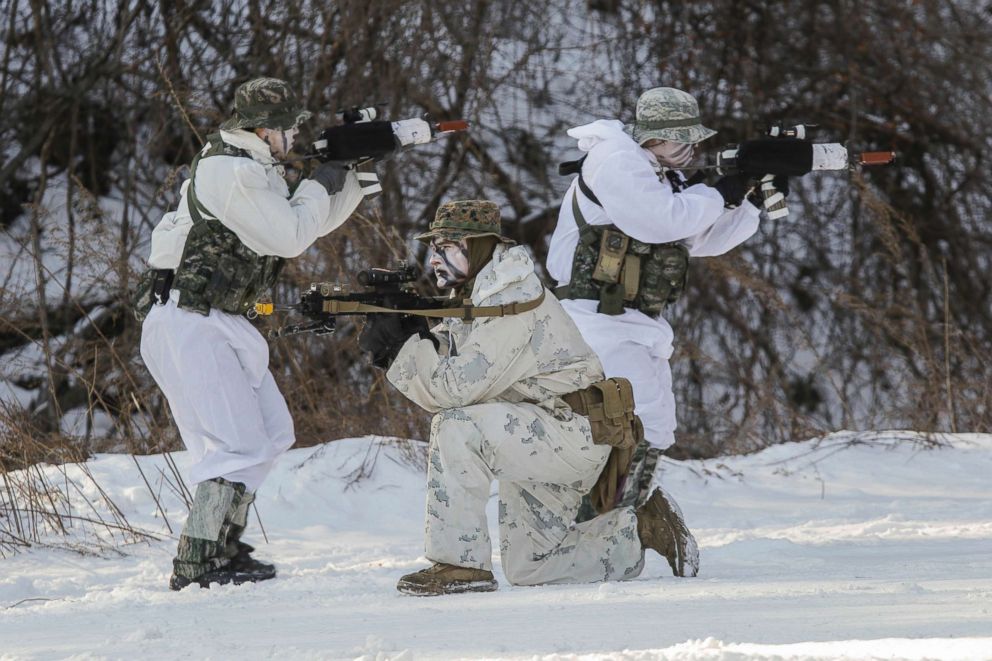
A day later, White House press secretary Sarah Huckabee Sanders clarified Haley's comment said via Twitter, saying, "The U.S. looks forward to participating in the Winter Olympics in South Korea. The protection of Americans is our top priority and we are engaged with the South Koreans and other partner nations to secure the venues."
On Jan. 2, for the first time in two years, North Korea restored communications via a direct military hotline with South Korea to discuss sending a North Korean delegation to the Games.
“We see no point in a dialogue that only discusses the Pyeongchang Olympics without talking about the nuclear issue,” said Jeong Tae-ok, a spokesman for South Korea's main opposition, the Liberty Korea Party. “North Korea will surely make unreasonable demands, starting from wanting to be recognized as a nuclear state."
South Korea is bolstering up security ahead of the Winter Olympics. The defense ministry plans to deploy approximately 5,000 armed forces personnel to the Games. Hundreds of armed personnel have also participated in security drills in front of Pyeongchang Olympic Stadium to prepare against terror attacks, according to Reuters.
South Korean's immigration office has deported at least "17 foreigners who could potentially pose a terrorist menace to the Olympics," according to Seoul-based newspaper The Korea Times.



